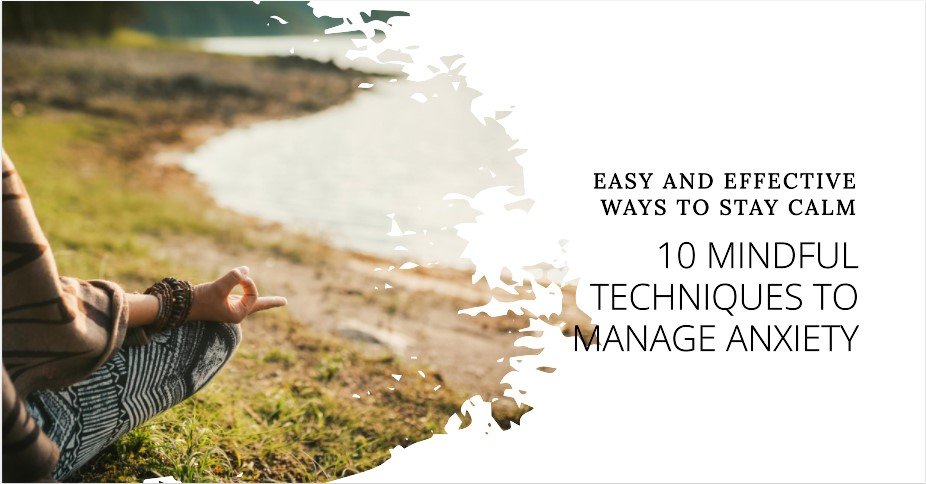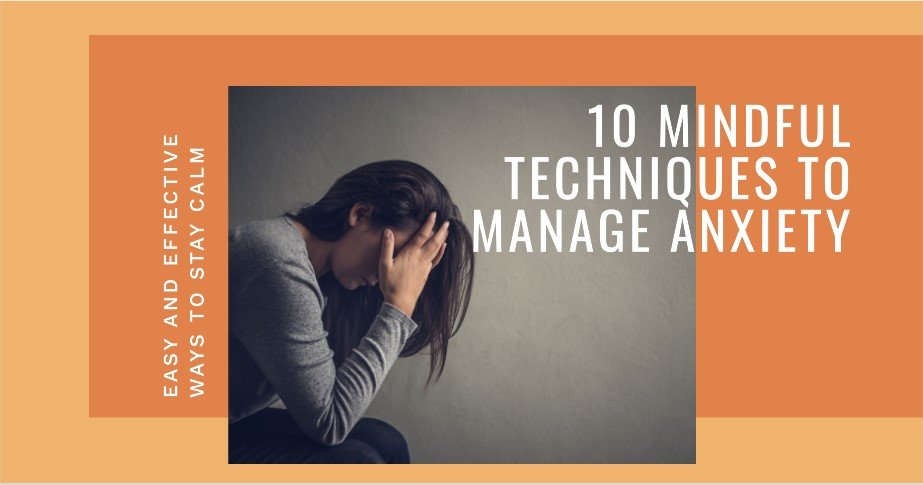10 Simple Mindfulness Techniques for Managing Anxiety
Introduction
Anxiety can be a debilitating condition that affects millions of people worldwide. It can cause feelings of worry, stress, and panic, making it difficult to carry out daily activities. But, with the right techniques and a little effort, it’s possible to manage anxiety and improve your overall mental health.

1. Deep Breathing Exercises
Breathing exercises can help you slow down your breathing rate, calm your mind, and reduce feelings of anxiety. Try inhaling slowly and deeply through your nose, holding your breath for a few seconds, and then exhaling slowly through your mouth. Repeat this process several times.
2. Meditation
Meditation is a powerful tool for reducing stress and calming the mind. Try to find a quiet place where you can sit or lie down comfortably, close your eyes, and focus on your breathing. Let your thoughts come and go without judging them.
3. Progressive Muscle Relaxation
Progressive muscle relaxation involves tensing and relaxing specific muscle groups to release tension and stress. Start by tensing the muscles in your feet and slowly move up through your body, tensing and relaxing each muscle group as you go.
4. Gratitude Practice
Focus on the things you’re grateful for in life. This can help you shift your attention from negative thoughts to positive ones, reducing feelings of anxiety and stress. Write down three things you’re thankful for every day, or practice mindfulness during meals to focus on the food and the moment.
5. Walking or Exercise
Physical activity can help relieve stress and improve your mood. Try to go for a walk, go to the gym or yoga class, or engage in any other physical activity you enjoy. The release of endorphins will help you feel better mentally and physically.

6. Mindful Eating
Mindful eating involves paying attention to the food you’re consuming, the flavors, textures, and smells. This can help you become more present and reduce feelings of anxiety.
7. Get Enough Sleep
Lack of sleep can make feelings of anxiety worse. Try to get at least 7-8 hours of sleep each night and maintain a consistent sleep schedule to improve the quality of your sleep.
8. Connect with Others
Social support is crucial for managing anxiety. Try to connect with friends, family, or a support group. Talking to someone about your worries can help you feel less alone and more in control.
9. Challenge Negative Thoughts
Challenge the negative thoughts that contribute to your anxiety. Ask yourself if they’re based on fact or fiction, and try to reframe them in a more positive light.
10. Acceptance
Finally, try to accept that anxiety is a part of life and that it’s okay to experience it. Don’t try to suppress or ignore it; instead, work on managing it and finding ways to cope.
Frequently Asked Questions
- What is mindfulness, and how can it help with anxiety? Mindfulness is a mental state achieved by focusing one’s awareness on the present moment, while calmly acknowledging and accepting one’s feelings, thoughts, and bodily sensations. It has been shown to help reduce stress and improve mental health.
- How often should I practice deep breathing exercises? You can practice deep breathing exercises as often as you need to. Start with 5–10 minutes a day and gradually increase the time as you get more comfortable





